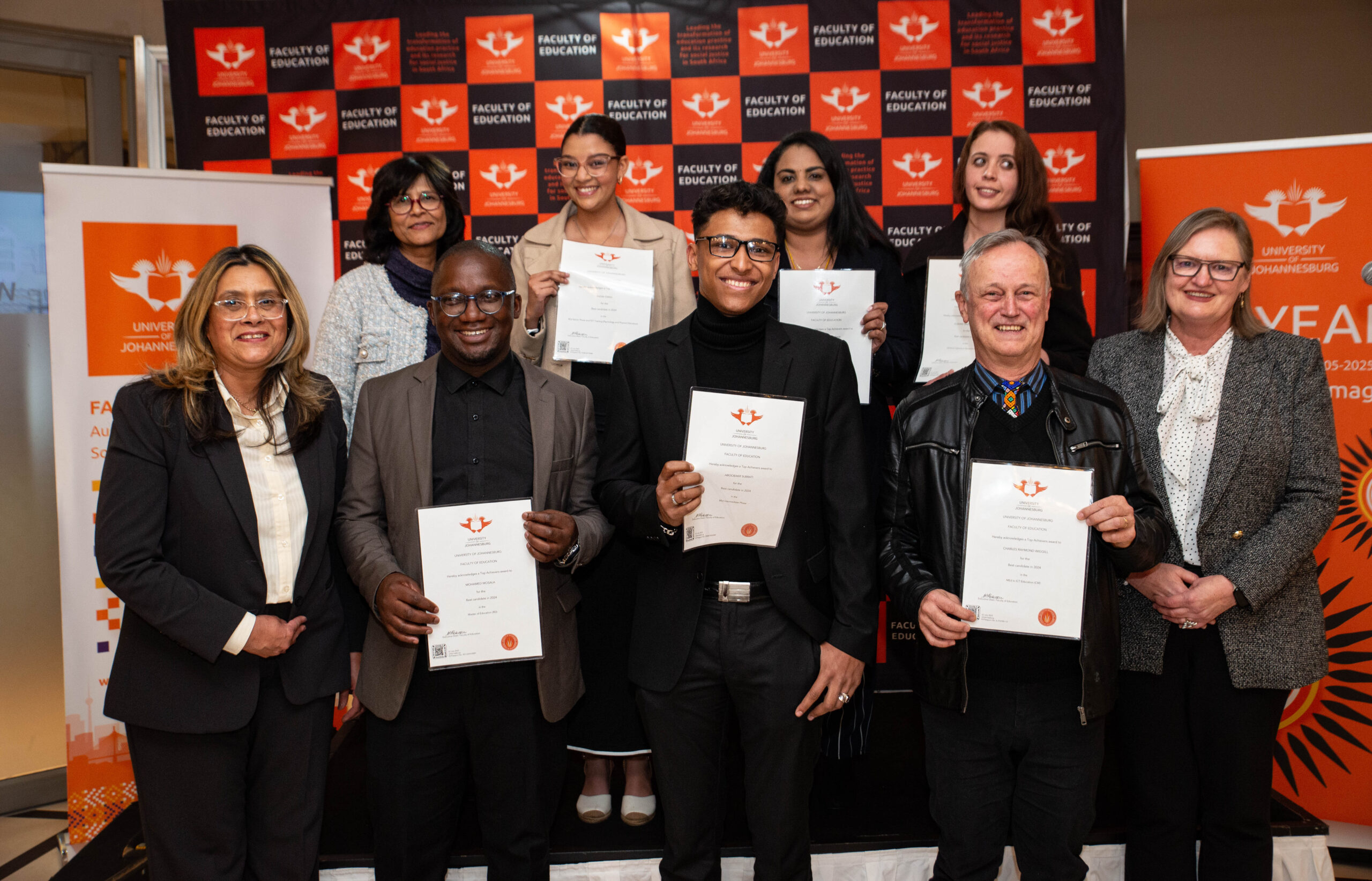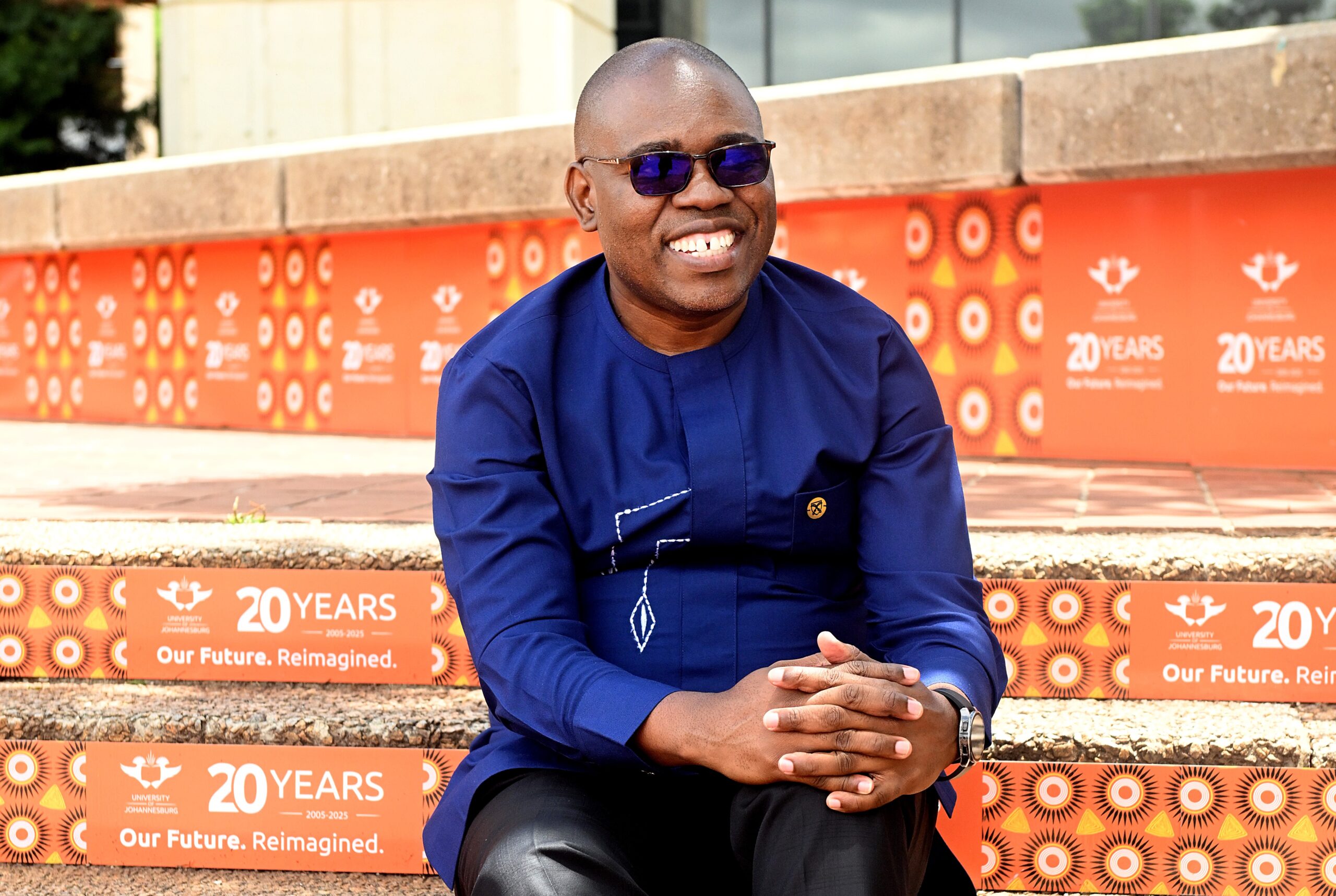An expanding gig economy, the threat of automation and job loss, a ballooning emphasis on technology skills and an increasingly tight labour market are changing the landscape of today’s workforce and ushering in a new era — a fourth industrial revolution.
This was the view of Prof Tshilidzi Marwala, Vice-Chancellor and Principal at the University of Johannesburg (UJ), during a webinar organised by the UJ Centre for Africa-China Studies (CACS) co-hosted by the UJ Library. This event was held under the theme Gearing Africa for the 4IR.
“In Africa, more people have access to cell phones than to clean drinking water or electricity. That widespread adoption of digital technology supports new ways of doing business, such as mobile payments, that could help struggling African economies “leapfrog” from poverty to economic growth and stability. But is the technology fueling a turnaround? There is a scope to tap into 4IR but many worry that it will make humans irrelevant,” said Prof Marwala.
He was among a diverse group of panellists drawn from the United Nations (UN), the Organisation for Economic Co-operation and Development (OECD), Huawei Technologies and the Youth Bridge Trust (YBT). Attendees spanned several countries throughout the African continent, as well as China, France, and Switzerland.
Prof Marwala emphasised on the inequalities that stand to characterise the 4IR and thus the necessity of cooperation with advanced international partners while also fostering domestic innovation. “The role of the 4IRSA commission is to assist govevernment in taking advantage of the opportunities presented by the digital revolution.”
He added: “We have a set of 8 recommendations that will assist South Africa and the African continent to achieve the goals of reducing poverty,unemployment & inequality. Thus a comprehensive view of the entire human capital system must be developed and we need to invest in projects for mass skills development,” explained Prof Marwala.
Also speaking, Ms Gitanjali Sah, Strategy and Policy Coordinator for the World Summit on the Information Society, ITU, United Nations, fixated on the prospects of technological development and the promise it holds for Africa’s realisation of its Sustainable Development Goals (SDGs). She pointed to the importance of digital skills in many parts of the continent; a situation that rapidly needs to be improved, she added.
“The Covid-19 crisis has demonstrated the power and promise of ICT as never before. During this lockdown, billions of people have relied on ICT for news, tele working,remote learning, shopping, staying in touch with loved ones and health purposes. To date, 3.6 billion people are still not connected to the internet especially those in rural and remote areas and that is why our mission is to connect everyone and everywhere,” Ms Sah pointed out.
Mr Edward Zhou, Vice-President for Global Public Affairs for Huawei, elaborated on 5G and its importance in the pursuit of the fourth industrial revolution. Huawei is the first research and development organisation to develop and deploy 5G, the next generation of wireless technology which is one of the crucial infrastructure components of the 4IR. “So far, Huawei South Africa has launched free 5G training for ICT university students,” he noted. The company has been extensively active in collaborating with the government, through the Ministry of Communications and Digital Technologies, in disseminating training programmes in places where digital skills are in urgent need, including in Mthatha and East London.
The presentation by Mr Thang Nguyen-Quoc, Economist for Africa Unit: OECD Development Centre, focused on the technology cooperation between the OECD and African countries on infrastructure. “Multiple studies conducted in partnership with African governments and organisations have demonstrated that the amount of resources for development in Africa has not kept up with the population growth,” he said.
“It is important for us to look at external financing for development in Africa in the time of Covid-19, so that we can answer the question of how we can finance all this infrastructure. With crisis coming, major sources of development financing are all vulnerable to Covid-19 catastrophe.”
Observing that by 2030 Africa will be the youngest population in the world, the discussion by Mr Seth Mulli, Executive Director of the YBT, spoke about 4IR and Africa’s youth. In his address, he highlighted work being done by his organisation towards innovation for development through grassroots education and entrepreneurship. This work aims to realise the youth dividend that the convergence of these factors promises to bring about. “We are catalysing the impact in Africa through scaling our programmes to reach more youth in different geographic locations,” said Mr Mulli about his organisation.
In closing, Dr David Monyae, the Director of the CACS, touched on the concept of the 4IR as a developmental issue for African countries, being defined by paradigm-shifting features. “Partnership trends that Africa could use to improve its loss all require a higher range in 4IR including small scale agriculture as it accounts to food production in Africa as well as the use of data. Positioning the agricultural sector could be used to optimise farming and national disasters,” said Dr Monyae.
Professor Peng Yi, co-director of the Centre, thanked the speakers and the audience for their presence and participation as well as the organising staff of the various institutions represented and the University. They all contributed to the success of the seminar she said.



